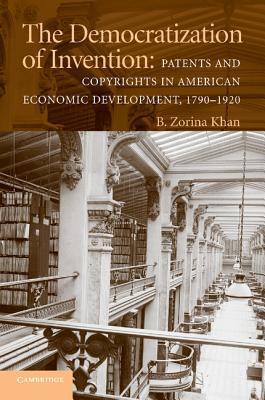[Read] PDF/Book The Democratization of Invention: Patents and Copyrights in American Economic Development, 1790–1920 (NBER Series on Long-Term Factors in Economic Development)B. Zorina Khan

Ebook PDF The Democratization of Invention: Patents and Copyrights in American Economic Development, 1790–1920 (NBER Series on Long-Term Factors in Economic Development) | EBOOK ONLINE DOWNLOAD
If you want to download free Ebook, you are in the right place to download Ebook. Ebook/PDF The Democratization of Invention: Patents and Copyrights in American Economic Development, 1790–1920 (NBER Series on Long-Term Factors in Economic Development) DOWNLOAD in English is available for free here
[Download] Link : [Downlload Now] The Democratization of Invention: Patents and Copyrights in American Economic Development, 1790–1920 (NBER Series on Long-Term Factors in Economic Development)
Read More : [Read Now] The Democratization of Invention: Patents and Copyrights in American Economic Development, 1790–1920 (NBER Series on Long-Term Factors in Economic Development)
Description
An Examination of the evolution and impact of American intellectual property rights during the 'long nineteenth century,' this book compares the American system to developments in the more oligarchic societies of France and Britain. The United States created the first modern patent system and its policies were the most liberal in the
world toward inventors. Individuals who did not have the resources to directly exploit their inventions benefited disproportionately from secure property rights and the operation of efficient markets. When markets expanded, these inventors contributed to the proliferation of new technologies and improvements. In contrast to its leadership in the area of patents, the US copyright regime was among the weakest in the world, in keeping with its utilitarian objective of promoting the general welfare. American patent and copyright institutions promoted a process of democratization that not only furthered economic and technological progress but also provided a conduit for the creativity and achievements of disadvantaged groups.
